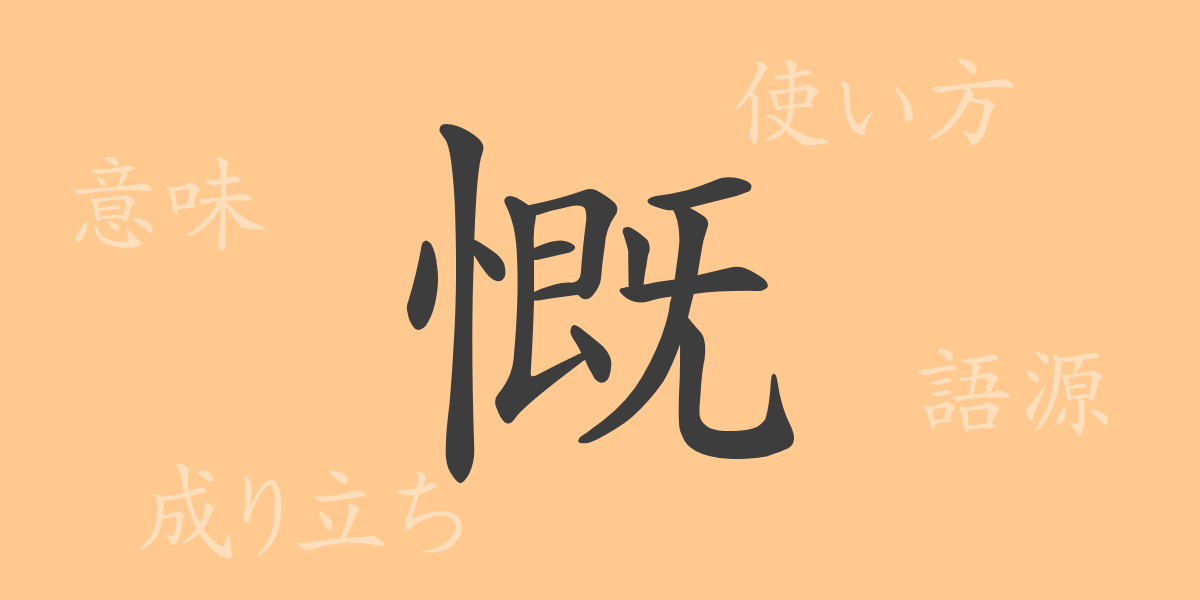The beauty of the Japanese language lies in its complexity and richness of expression. The meaning embedded in a single kanji character can be profound, and at times, one kanji has the power to move people’s hearts. In this article, we focus on one of Japan’s commonly used kanji, “慨” (Gai), and explore its allure.
The Origins (Etymology) of 慨 (Gai)
The kanji “慨” (Gai) includes the radical “心” (Kokoro), which represents emotions, indicating that it originally had meanings related to feelings. This kanji evolved from traditional characters used in ancient China and was transmitted to Japan. It is often used to express strong emotions, especially grief or sorrow.
The Meaning and Usage of 慨 (Gai)
The kanji “慨” (Gai) carries meanings such as “to mourn,” “to lament,” and “to be deeply moved.” It is particularly used in the form “慨然” (Gaisen), which means “to be greatly moved” or “to be indignant.” When you see this kanji in a text, you can sense the movement of strong emotions.
How to Read 慨 (Gai), Stroke Count, and Radical
The kanji “慨” (Gai) has a unique reading and structure.
- Reading: The on’yomi (Chinese reading) is “がい” (Gai), and there is no particular kun’yomi (Japanese reading).
- Stroke count: 13 strokes
- Radical: 心 (Heart)
Idioms, Phrases, and Proverbs Using 慨 (Gai) and Their Meanings
Idioms and phrases containing “慨” (Gai) often reflect its deep meaning. For example, the idiom “慨世” (Gaisei) means “to lament the world” and expresses a profound concern for society. The phrase “慨然として” (Gaizen-tosite) is used to mean “being greatly moved” or “being indignant.” These expressions are not commonly used in everyday conversation but are valued in literary expressions and formal writing.
Summary on 慨 (Gai)
The kanji “慨” (Gai) symbolizes the depth of the Japanese language in its origins, meanings, and usage. This kanji, used to express strong emotions that stir the heart, is a special entity that can maximize the power of words. Through this exploration, let us reacquaint ourselves with the meanings behind each kanji character and aim for a richer expression in the Japanese language.

























